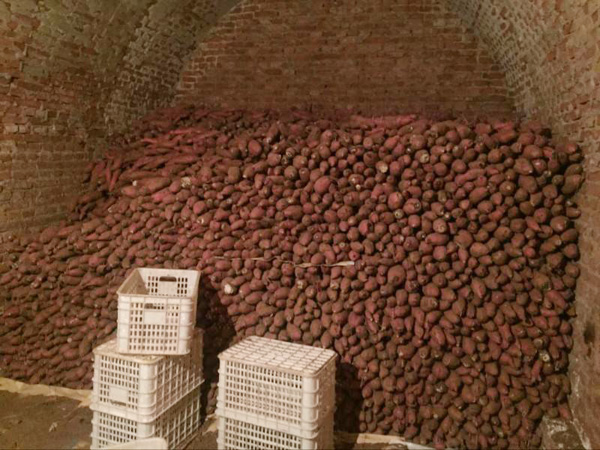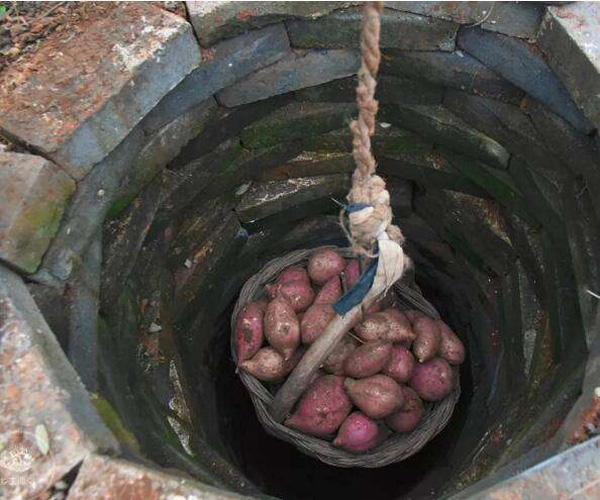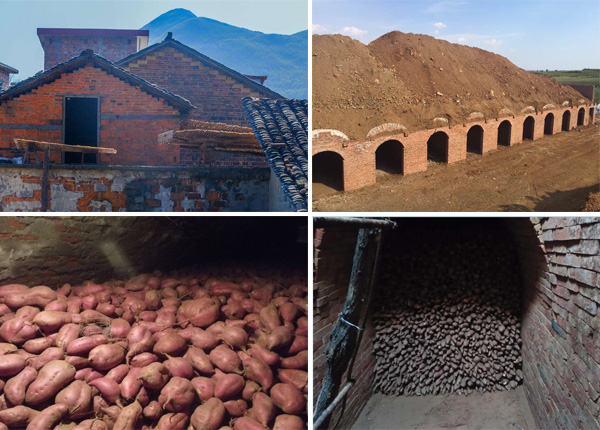 Tel/WhatsApp
Tel/WhatsApp
How to store sweet potatoes for winter ?
Sweet potato is not resistant to low temperature, and it is easy to suffer from chilling and freezing damage. It is easy to damage sweet potato skin during harvesting, transportation and storage, increase infection of bacteria. Storage as an important link in sweet potato production, how to store sweet potatoes for winter? It is important to grasp every link in the process of harvesting, transportation and storage.
 Sweet potato
Sweet potato
1. Timely harvest
For the question of how to store sweet potatoes for winter, timely harvesting is the first step. Harvesting starts at a local temperature of 18 ° C. If it is used for eating, it can be harvested later, but it must be collected before the frost. The sweet potato should be harvested in the morning on a sunny day. After harvesting, they should be dried in the field, and then the sweet potato pieces that have been flooded, chilled, frozen, broken, etc. Then the selected sweet potatoes should be shipped back to the cellar for storage in the afternoon.
2. Preparation of storage
The cellar should have good ventilation equipment for how to store sweet potatoes for winter, better heat preservation and cold protection function, and at the same time, the structure of cellar should be sturdy and durable, convenient for management. The site of cellar is selected in the place where are leeward and sunny, the terrain is high and dry, the groundwater level is low, and the transportation is convenient. The new cellar shouold be cleaned before storage, and the old need to be sterilized before storage.
 Store sweet potato in cellar
Store sweet potato in cellar
3. Storage method
a. Well cellar storage
Choose a place with high terrain, solid soil and low groundwater level. Dig a wellbore, generally about 1 meter in diameter and 5 to 6 meters deep in the wellbore. The size of the storage compartment can vary depending on the amount of storage. The storage room for how to store sweet potatoes for winter should be padded with 10 to 15 cm thick dry sand and then placed sweet potatoes on them. Sweet potatoes can only be filled with 70%, so as to leave a place for ventilation, otherwise it will be aggravated by wet and hot.
 Well cellar storage
Well cellar storage
b. Shed storage
Generally, the mantle is about 2 meters wide, 3 to 4 meters long, and 2 meters deep. The sweet potatoes are piled up from the bottom up, and the sweet potato should be avoided from direct contact with the wall for how to store sweet potatoes for winter.
c. Warehouse storage
The storage of the warehouse is a very practical way for how to store sweet potatoes for winter. It is similar to an ordinary house, but the sealing must be good, and it is thicker than the walls of ordinary houses. The warehouse are small, save labor and materials, and are suitable for storage by farmers. Generally it can store 1500 ~ 3000 kg sweet potatoes.
 Sweet potato storage
Sweet potato storage
d. Indoor storage
Sweet potato is afraid of cold, when the temperature is too low, it will be frozen, forming a hard heart, causing difficult for processing. If the temperature is too high, it will sprout, so the room temperature should be controlled at about 15-20 °C. If the sweet potato is exposed to moisture, it is easily be invaded by the bacteria, causing them to rot. Therefore they should be kept in a ventilated wooden box. For how to store sweet potatoes for winter, if there is no wooden box, the place where the sweet potato is stacked and the wall should be covered with wooden boards, and the sweet potato piles should be covered with something to prevent moisture. During the warm day, open the window to change the air to keep the indoor air fresh and prevent cold air from blowing in.
 How to store sweet potatoes for winter
How to store sweet potatoes for winter
4. Timely storage
Sweet potatoes are best be stored as soon as possible after the harvest, and should be handled gently during storage to prevent damage to the sweet potato skin. A straw pile with a diameter of about 10 cm is erected every 1.5 m between the sweet potato piles, which is good for ventilation, moisture dissipation and heat dissipation. Sweet potato storage generally accounts for 2/3 of the space, and can not be stored too much, which easily leads to the decay of sweet potato due to poor ventilation and heat dissipation.
The above is the introduction of how to store sweet potatoes for winter. For many farmers, a best way to extend the service life of sweet potatoes are process them into starch, which not only increase the economic value of sweet potatoes and prevent losses caused by improper storage. As professional manufacturer of sweet potato starch processing machine, you are welcomed to consult us about how to store sweet potatoes for winter or contact us for sweet potato starch machine.
-
 Cassava transformation into gari granules facility shipped to Guyana
Cassava transformation into gari granules facility shipped to Guyana
-
 15tph full set cassava chips processing facility was shipped to Laos
15tph full set cassava chips processing facility was shipped to Laos
-
 Cassava mill and garri sieving plant designed for standardized garri production was dispatched to Nigeria
Cassava mill and garri sieving plant designed for standardized garri production was dispatched to Nigeria
-
 How is tapioca flour produced?
How is tapioca flour produced?
-
 How profitable is garri processing?
How profitable is garri processing?
CONTACT US
DOING company offers cassava processing machine from single machine to the complete production line. If you want to get more details about cassava processing machine, please contact us:
- Do you want to buy machine?
- Yes, I want to buy machine
- No, I Just learning
- What is your raw material?
- Cassava
- Potato
- Sweet potato
- Others
- 2. What is the final product you want to produce?
- Garri
- Cassava flour
- Cassava starch
- Cassava chips
- Attiekie
- Bammy
- Others
- 3.What is your capacity plan?
- Small scale garri machine
- 1ton per day
- 2tons per day
- 3tons per day
- 10tons per day
- 20tons per day
- Others
- 3.What is your capacity plan?
- Small scale
- 5tons per day
- 10tons per day
- 20tons per day
- 50tons per day
- 100tons per day
- Others
- 3.What is your capacity plan?
- Small scale
- 5tons per day
- 10tons per day
- 20tons per day
- 50tons per day
- 100tons per day
- 200tons per day
- 300tons per day
- Others
- 3.What is your capacity plan?
- Small scale
- Middle type
- Large scale
- What is your capacity plan?
- Small scale
- 5tons per day
- 10tons per day
- 20tons per day
- 50tons per day
- 100tons per day
- 200tons per day
- 300tons per day
- Others








